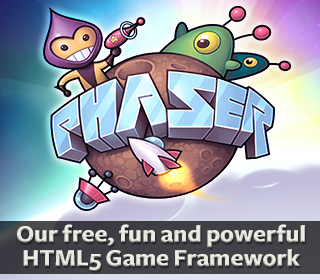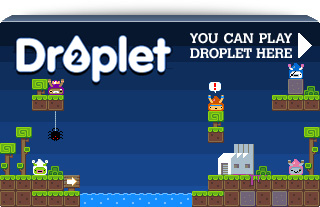Flash Game Dev Tip #9 – Dealing with a lack of motivation to finish your game

Tip #9 – Dealing with a lack of motivation to finish your game
You are not alone
Everyone suffers from this problem at one point or another: You simply can’t face the thought of working on your game. This is especially hard when making the game in your “free time”. It’s all too easy to think “what the hell” and double-click that Team Fortress icon instead of FlashDevelop. And even days when your head is saying “let’s code!” all that motivation can vanish the moment you open the source and realise that its been so long since you were last here it’s like staring at a foreign language, or a giant brick wall and you have no idea what to start first.
There is no “single solution” to fix this. It’s extremely personal. Your reasons for not wanting, or being able to code will be as varied as the number of people reading this. But as I said at the start you are not alone – so I posed the question of how to deal with it to 13 fellow game developers and collated their replies. Hopefully somewhere in these insights you’ll find a technique or suggestion that helps you out. And if you have one that you personally use, not already mentioned, please post it into the comments.
I’ll kick things off …
Richard Davey / Photon Storm
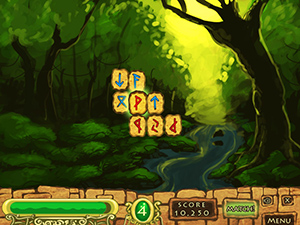 I’ve come to realise that I’ve a game development mana reserve. When I start work on a game, my mana reserve is full. But as coding begins this reserve drops faster and faster. Sometimes if I hit a particularly troublesome spot in a game it can be enough to utterly wipe-out what reserves I had left, derailing the project entirely. But there are also the “wins”. Getting a significant part of the game finished, or adding something really cool. That helps re-fill my mana reserves and keeps motivation high. It’s a constant battle. To get the game finished before enthusiasm is depleted entirely, yet to have enough wins on-route that they keep things in balance.
I’ve come to realise that I’ve a game development mana reserve. When I start work on a game, my mana reserve is full. But as coding begins this reserve drops faster and faster. Sometimes if I hit a particularly troublesome spot in a game it can be enough to utterly wipe-out what reserves I had left, derailing the project entirely. But there are also the “wins”. Getting a significant part of the game finished, or adding something really cool. That helps re-fill my mana reserves and keeps motivation high. It’s a constant battle. To get the game finished before enthusiasm is depleted entirely, yet to have enough wins on-route that they keep things in balance.
The “wins” however cannot be artificially placed into the project. They have to be unexpected and grow almost organically as a result of working on the game. Equally the hits to my morale are never expected either. I never start coding expecting to stump my toe on a bug from hell, but it happens.
There are two issues here:
1) Having the motivation to continue working on a game
I think like a lot of people I’m most excited about a game during the very early stages of it. The feeling of bringing something to life, of getting the idea out of your head and into code – that’s a real achievement in and of itself. I enjoy the task of getting a working prototype up and running, often with really crappy code driving it. The thing to do at this stage is to try and work out for yourself if you should stop right now, and not even attempt to carry on.
Use those prototypes
There is nothing wrong in building a prototype and just leaving it at that. Of course if you’re in this for the money it’s not going to get you rich, but if like me you do this for fun then you shouldn’t feel any sense of “guilt” for having made just a prototype. If by this point you recognise that your enthusiasm is on the wane already then don’t just file it away for another day, thinking you’ll come back to finish it later on. Because almost certainly it will never happen. If you don’t have the enthusiasm or excitement at the end of this stage to take the game further, then you never will.
Don’t waste it though. Think about how what you’ve made could be useful to others. Perhaps it’d serve as an interesting “I made this little demo” post for your blog or a forum. Or maybe it could be turned into a tutorial for a development site with little modification. You may be surprised at the response. I’ve had people see “demos” of work who suggested just one change, that radically altered the course of the game, resulting in it being finished and released. As I mentioned at the start, “mana refills” can come from anywhere, sometimes the most unexpected of places.
Do something other than making games
 Making complete games is hard, there’s no doubting this. Even the most simple of games still require quite tedious boot strapping to make them suitable for release. But that “rush” and feeling of sheer joy you get when you finally publish doesn’t always have to come from making a game. As readers of my blog will know I work on a lot of game development projects such as my Flixel Power Tools or tutorials. I do this because I enjoy writing, but also because I remember what it was like being fresh to development – how I was a sponge, soaking up every last piece of information I could get my hands on.
Making complete games is hard, there’s no doubting this. Even the most simple of games still require quite tedious boot strapping to make them suitable for release. But that “rush” and feeling of sheer joy you get when you finally publish doesn’t always have to come from making a game. As readers of my blog will know I work on a lot of game development projects such as my Flixel Power Tools or tutorials. I do this because I enjoy writing, but also because I remember what it was like being fresh to development – how I was a sponge, soaking up every last piece of information I could get my hands on.
There is a real thrill in authoring this type of content too, and publishing it. So you don’t feel like making a whole game? No problem – could you make a demo that showcased how to make a sprite jump from platform to platform? The scale is significantly smaller, but the end result could be extremely useful to your fellow developers. And their feedback can be enough to spur you on during the more laborious development work you need to do.
Of course the downside of all this writing is that it takes your time away from making actual games, as Ilija will attest to 🙂
Public Beta Tests
We ran a public beta test of a game called Kingdums. We just put a build of the game onto a web page with a big feedback form below it, and shouted the URL onto twitter. It was live for a week. The feedback we got was fantastic, because it under-lined a significant flaw in the game (that was in the back of our minds anyway, but made it prominent) and reaffirmed that actually, this flaw aside, people really enjoyed playing it. Other developers use public beta tests for similar reasons – lots do it to find out if their games have bugs they’ve missed, but it doesn’t just have to be about that. Sometimes you’ll get suggestions that highlight issues you didn’t see, and sometimes it’s just a good morale boost.
It’s not just code that can be tested – you could post-up screen shots, character bios, even basic story arcs. All things that feed back into the game overall.
Enforced Time Constraints
Some people don’t understand the point of making a game in a limited period of time. Others relish the challenge. Personally I fall somewhere in the middle. I haven’t yet had a chance to take part in something like Ludum Dare, because I have a family life that stops things like that happening over weekends. But the times that I have made a game in a limited period of time (we’ve done it 3 times now) it has always worked for the better. Todo lists get cut down dramatically. Only the essential game aspects are given attention, and the time limitation really does focus your mind. Try it, it may appeal to you.
Using a To-Do List
You’ll see this suggestion raised time and again by the other devs below. Ilija and I use the free software Wunderlist. I like the fact I can add items from my iPhone or PC and have it all sync-up properly. We don’t have lists for prototypes, only for games deep in development. I find it pointless starting a list with “make an enemy manager”, that feels too early-on in the process for us.
2) Dealing with “getting stuck” while coding
This is the easiest to solve. If you have a coding problem, then you ask for help. If you don’t work in an environment where you can ask fellow coders for suggestions, then there are hundreds of really great game dev communities online. And you should join one and really participate with it. Help out other people suffering problems you may already solved, and post your problems up there also. More often than not someone will help, or at least direct you onto the right path that leads to solving the problem anyway. If you can’t solve the issue within a couple hours of trying, and can’t think of another way to approach it, then you need a bring a second brain into the equation. The longer you delay in asking for help, the more chance you have of never finishing.
Don’t feel guilty
 You’re only human. Human’s need a fine balance between work, rest and play. And developers are terrible at balancing those three elements. There’s a famous producer graph showing “Price – Speed – Quality”, with the mantra that you can only ever have 2 of those 3 things. So “Speed + Quality comes at the expensive of Price”, or “Low Price + Speed means low Quality”.
You’re only human. Human’s need a fine balance between work, rest and play. And developers are terrible at balancing those three elements. There’s a famous producer graph showing “Price – Speed – Quality”, with the mantra that you can only ever have 2 of those 3 things. So “Speed + Quality comes at the expensive of Price”, or “Low Price + Speed means low Quality”.
I feel that developers do the same with “Coding – Resting – Playing”. By “Playing” I mean taking time out from coding: watching a movie, spending time with your significant other, reading a book, playing Xbox, etc. Too much coding but the right amount of sleep usually means you give-up your “play” time. If you’re burning the candle at both ends, holding down an intensive day job and then coding all night, your Rest and Play can be sacrificed. If when you sit at your computer you find the code just isn’t flowing then stop. Don’t battle it, don’t trudge through. Just stop and do something else entirely (ideally non-computer based). Then try again the next day. If you’ve been working like mad all week, getting a few hours sleep a night, then pay off that sleep debt.
Development is a roller-coaster of highs and lows. If you recognise you’re on a coding streak then enjoy it and use it to your advantage, but when it ends (and it will end) switch track quickly and work on something else. Then switch back again. The quicker you learn to recognise your “moods” the more useful you can make them. I’m not perfect at this yet, not by a long shot. I still have lots of “unfinished” games, indeed the artwork I used to illustrate my text above is all taken from games I’ve not yet finished, and there are plenty more. But I never sit idle. I do at least work and release. If I’m not making a game, I’ll write, and if I’m not writing I’ll help out in a forum. If I’m not in there maybe I’ll be playing a little Counter Strike. The point is that I feel I do balance them well, one doesn’t over-power the other. I just wish I had more hours in the day 🙂
That’s me done with, now onto 13 other developers for their views on this subject …
John Cotterell
“I make a point of working on something every day, even if only for a few minutes, that way I’m always making some kind of progress, and it keeps you in the habit of doing something so that when you are motivated you get a shitload done.
When I’ve lost motivation on commercial work I break work down into studpily small steps – import assets, add method to class, email project manager, etc. That keeps the momentum going and keeps the big picture hidden away from view, which is sometimes what you want.
Flow is a subject every game developer should familiarise themselves with – it has so much relevance to us as it’s crucial to great game design, as well as it is for getting the job done. http://en.wikipedia.org/wiki/Flow_(psychology) I rarely find myself in that state as a developer, but I do occasionally have good days, and time really does fly by when you’re in that state of mind.”
Bas / Bits of Bas
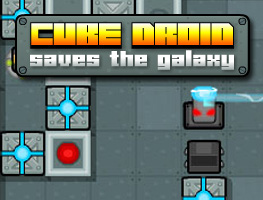 “I’m on several customer monster projects and I’m dragging myself from deadline to deadline since the beginning of February, working from 07:00 to 21:00 on weekdays. Weekends maybe 9:00 to 15:00. As you can imagine my motivation is in pretty bad shape and I don’t even remember what it was that made me think it was a good idea taking on this huge amount of projects.
“I’m on several customer monster projects and I’m dragging myself from deadline to deadline since the beginning of February, working from 07:00 to 21:00 on weekdays. Weekends maybe 9:00 to 15:00. As you can imagine my motivation is in pretty bad shape and I don’t even remember what it was that made me think it was a good idea taking on this huge amount of projects.
The three things that keep me sane:
1. My to-do list. Stop myself from thinking and just go do the frigging next point on the list.
2. Knowing there will be a nice amount of “sure” money ( instead of sponsor “maybe” money ) waiting for me at the end of the ride that will allow me to take a long summer holiday and pave the road to starting my own projects again.
3. Surely when looking back after a couple of months, I will be proud of my creations. Looking at the bright side always helps.
As for my own projects, all these help:
- Choosing a game-play you REALLY like. That keeps me entertained.
- Go for SMALL games if you know your motivation is a liability.
- A decent GDD or to-do list. Moving from point to point. Keep yourself in line.
- Working in a ( small ) team. When my mate does all the graphics, I can’t bring myself to saying I don’t feel like going on any more.
- Don’t start several projects at once. It’s like a treat for myself; Once I finish this game, I can go on and pick a new one!
Sudden drops in motivation might be solved by: Doing an (even worse) chore in the house, snacking, going out for a walk / shopping, posting to a friendly forum.”
Olli / Gaming Your Way
“I usually don’t have to motivate myself there, although, our current in-house project is dragging for 9 month now. It got WAY bigger than first imagined (way better too) The thing that keeps me going on that one: the todo list (producteev.com and astrid/android) AND the knowledge that it’ll be done more or less soon.
On personal projects it’s a different matter …
I’m working on two things right now: crystalis and the quite complex hellstrom. On both games it’s the todo list (see above) and the fact that I enjoy working with c#/Unity/3d. The one thing that distracts me is my wife, though. Otherwise I’d be working more on the games.
She constantly tells me that if I feel that I need to work on my games more I can do it – but as girls are there is a certain “but you better don’t” attached to it. Luckily she’s the manager of a venue and does at least one night shift per week.”
Editors Note: Olli touches on a real issue here – that of family life getting “in the way” and the real feeling of guilt that devs endure when they are desperate to “escape” and just geek-out for a while. There’s no denying that we love our families, and enjoy spending time with our wives and children. But for most geeks I know there is a real need to get away from it all, even for a short period of time, and create or do something constructive on their computer. This is worthy of a whole article in itself.
Julian / LongAnimals
http://www.longanimalsgames.com
1) Think of the money, and how crap your old age will be if you don’t save up.
2) Don’t take too long over a project.
Iain Lobb
“If you’re not feeling the project, the best thing to do is just break it down into micro-tasks and tick them off one by one. At this level it’s pretty brainless so I’ll sometimes stick on a DVD or podcast while I work on client stuff. For personal / indie projects, the best thing for me seems to be to have a very small scope at the start. Scope will obviously grow/creep as the project develops, but at least by starting small you aren’t setting yourself up for failure. The other really important thing for all projects is to have the artwork first. This gives me a much better vision of the finished product and keeps me motivated to keep working. If you’re developing with grey boxes it can make it seem like finishing is impossible.”
Squize / Gaming Your Way
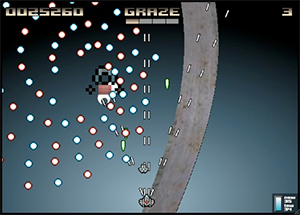 “Picking a game I’m panting to play. Very rarely I’ve pandered to what I thought the market would want, and those games have become such a slog because they’re not always a game I’m really into. If I’m writing a game for myself, which is what personal projects should be, then it’s because I really want to play that game.
“Picking a game I’m panting to play. Very rarely I’ve pandered to what I thought the market would want, and those games have become such a slog because they’re not always a game I’m really into. If I’m writing a game for myself, which is what personal projects should be, then it’s because I really want to play that game.
Split the boring stuff up. There’s always some parts of every project which are just donkey work no matter how fun working on the overall game is. If I know I’m going to spend a day doing something which makes me die a little inside, I budget the next day to do something fun, usually eye-candy related ( This why I often hear “You’ve put particles in there ? But, but the game doesn’t work” )
Personal pride. This may seem a little trite, but it’s very valid. We’ve worked so fucking hard to ensure that our games are of a certain standard, that we’re perceived a certain way, that we try and maintain those levels even if it means re-doing things to match our own expectations and no one else’s. We’re our own worse critics, and this is why we’ve only done one “Game in a day” as we just can’t add the levels of love we want in that time scale ( Obviously there is always a compromise, but if your expectations are high you compromise less ).
Getting others on board. If you want to give up smoking, or lose some weight, you tell people so you can’t back out without looking like a dick. The same applies with games, show people stuff early and often and it removes the chance of it becoming vapourware as you really don’t want to look bad after giving it large.
For me working on only one project at a time helps so much. It brings focus to it, and it stops a cross pollination of ideas between projects which always leads to feature creep ( I’ve just added something sweet to game A, hang on, that could work in game B if I just alter… ).
The hidden bonus to this is that during the vinegar strokes of a project you’ve got a brand new one to look forward to, rather than having more slog / donkey work on another one ( You forget about all that at the start of a project, if you didn’t you wouldn’t make games. It’s like forgetting just how painful child birth is ).
For client games it’s slightly different, there for me it’s about making the client love our work so much that they slide off their chair after a cum explosion. It’s not for the re-hire, that’s never really appealed, that’s like going to the same prostitute twice, it’s about making the client feel good about themselves for picking the right team, that we’ve hit the project and hit it hard. This is how we fucking roll client bitches, this is what you get when you go gyw. That and obviously the silly money.”
Editors note: Pure Shakespeare Squize, pure Shakespeare.
Ali / Alillm.com
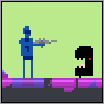 “I actually find that when I get bored of a project and want to start something else, it’s best to just give in and start the new project. If I don’t, I will constantly have it on my mind and I won’t get anywhere with the original project anyway. After a few days of working on the new project, my enthusiasm for it will have worn off a bit and it’s much easier to convince myself that finishing the original project is the best use of my time.
“I actually find that when I get bored of a project and want to start something else, it’s best to just give in and start the new project. If I don’t, I will constantly have it on my mind and I won’t get anywhere with the original project anyway. After a few days of working on the new project, my enthusiasm for it will have worn off a bit and it’s much easier to convince myself that finishing the original project is the best use of my time.
A positive side effect is that once I’ve finished the original project, I already have a good foundation for my next game waiting for me so I don’t have to start with a blank canvas.
Also, to-do lists are of course a big help, especially in the final stages where it’s just a case of adding all of the boring bits.”
Chris Houston / Utinni Games
“I find a useful thing with todo lists is at the end of the day you can look down and go “great, I’ve done those bits” and tick them off. You get to see what progress you’ve made, where often if you’re head-down in a big project it it starts to feel like it’s not going anywhere.
These days I usually have two lists, a “headlines” list and a “bugs” list. The headlines are the “Add Baddies” kinda things, while the bugs are the little nasties that crop up along the way. When the bugs list gets longer than the headlines, I do them all before going back to the nice bits.
Something else I’ve realised recently is that all project have their ups and downs. The fun bits and the boring bits, the parts that motivate you to work till the early morning, and the bits where you can’t be arsed to even look at it. But giving up or abandoning projects at the low parts mean you don’t get to the next good bit.”
Chris Underwood / Deeperbeige
 “Motivation on contract stuff is pretty much never a problem for me. I can turn down projects I don’t like the sound of much, so I’m likely to be at least a bit interested in it. There’s a pot of cash waiting at the end, and people checking up on your progress all the time. That sounds cold and cynical, but it’s not. I’m motivated to give my clients the best value I can for their dosh, and I never want to build bad games (although sometimes I do – and why is another lengthy subject).
“Motivation on contract stuff is pretty much never a problem for me. I can turn down projects I don’t like the sound of much, so I’m likely to be at least a bit interested in it. There’s a pot of cash waiting at the end, and people checking up on your progress all the time. That sounds cold and cynical, but it’s not. I’m motivated to give my clients the best value I can for their dosh, and I never want to build bad games (although sometimes I do – and why is another lengthy subject).
Private games are a different matter. With no externally enforced deadline, nobody harassing you to get it done, and with the latest blockbuster games installed on the work machine too, it’s all too easy to wander. The best defence I’ve found is brain-momentum. If you can get in that state of flow where you do pure work and don’t even notice the time go by, you’re on a winner. The hard part is getting there, but all you have to do is try hard a lot. It’s like getting a big heavy boulder rolling. It takes a lot of effort to get moving, but when it does it’s unstoppable. The trick for me is to muster enough willpower to force myself to do the hard slog bit at the start. I just have to force myself to get on with it.
Sometimes I’ll need to clear down other stuff first, or it’ll keep knocking me out of the zone. Get those important emails sent. Make up those invoices. Do the washing up. Watch the latest episode of Mythbusters and complete that latest game. Then be ruthless. Then get on with it. No excuses. No breaks. Open Flash and do at least an hour of gazing at code or tweaking level designs or something. Doesn’t really matter what in terms of getting momentum going, so pick something easy and fun. Once you’ve got brain-momentum going, the rest just falls into place automatically.”
Dave Munsie / Munsie Games
“I used to have severe motivation (a.d.d?) problems. Like most people I learned to take things in much smaller steps. Otherwise I really don’t have any motivation problems, because if I don’t work… I don’t make money. :)”
Tony / Tonypa
 “I don’t do contract work so it only leaves the games I make because making games is fun. Since there is no money involved, only fun-part, I stop the project as soon it is not fun anymore. Which happens a lot. Over the years I would say I only finish 1 out of 10 games.
“I don’t do contract work so it only leaves the games I make because making games is fun. Since there is no money involved, only fun-part, I stop the project as soon it is not fun anymore. Which happens a lot. Over the years I would say I only finish 1 out of 10 games.
I don’t even enjoy coding too much. Most fun is to imagine how something could work, usually at half-sleep. Sitting down and writing the code for it to work is interesting only as far it improves or changes the first idea. Something went wrong in the code but it creates new and interesting gameplay – scrap the original idea and go for this instead. For me making games is a lot like painting or writing novel, its a creative process where you have some vague idea about what you would like to create but process itself is the main reason to do it.
One thing I have noticed is to never start on graphics too early. If the game is not fun using only boxes and circles then it will not be fun with robots-zombie-vampires either. So I tend to stick with boxes and circles for a very long time, sometimes getting used to those so much that I never bother putting proper graphics into game :)”
Rob James / robotJAM
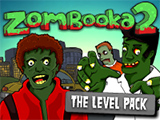 “I think it really helps on projects working fulltime with another person, me and the other guys generally spend most of the time kicking each other into getting stuff done, and on non contract jobs theres the added motivation the faster you get it done the more profitable it is.
“I think it really helps on projects working fulltime with another person, me and the other guys generally spend most of the time kicking each other into getting stuff done, and on non contract jobs theres the added motivation the faster you get it done the more profitable it is.
I always find I hate the first few days of a project, but I know that after that we’ll have a decent prototype done and the middle part of the project is always the best. Its the end which I really hate as you think its done and it always takes a while to finally kill them off.
We generally move onto lists in the last week of a project and just knock them off one at a time.”
Ilija Melentijevic / Photon Storm
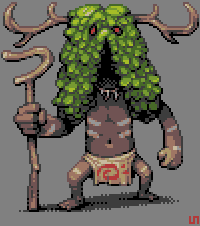 “I use lots of methods to tackle lots of related problems, so I’ll just spill it all, and you try and make sense of it. A long time ago I too had trouble with starting things. Typical procrastination stuff, you do nothing for so long and then you feel like you have to do something epic to make up for it, and that only makes it harder, etc.
“I use lots of methods to tackle lots of related problems, so I’ll just spill it all, and you try and make sense of it. A long time ago I too had trouble with starting things. Typical procrastination stuff, you do nothing for so long and then you feel like you have to do something epic to make up for it, and that only makes it harder, etc.
For me the trick was to just start doing anything. Not do it for the sake of completing it but for the sake of enjoying the process. I would just take a pen and draw something and it wouldn’t matter if it was good or bad. The point was to remember why I love doing it in the first place. We all sort of chose to do what we like to do, and when you forget that, you have to shed the things that make it not fun anymore and start over.
Another trick is to deliberately do things slowly. It helps separate the process from the goal, which in turn helps me to not be impatient and wish I’ve already completed something. I also employ this tactic when I have to wash the dishes or similar. I just start doing it and after a while it’s magically done.
All in all this would boil down to ‘making time stop’ for lack of a better description. I find that going to the office every day and clicking on thousands of links people send me each day makes me lose the grip on my time, and then I try to just stop and sort of be in the moment, in the ‘now’. It’s like there’s a big noisy machine out there and you can’t hear your own thoughts because of all the noise it makes.
I do suffer from being used to doing what I’m passionate about. I think this is very important in life and I don’t want to regret not doing it later. The drawback is that I start a zillion things and take on a zillion projects and thus lose focus and disintegrate. When I get passionate about the next thing, the thing I’m working on is of course not finished yet and so I just leave it there. Ultimately the right thing to do.
There are however times when I’m not in love with any project in particular and this is the time I use for making progress on the things that I’ve left hanging. I make lists, I put files and folders out on the desktop to remind me of their existence. It also helps to to a tiny bit of work done whenever you have a little bit of time. These fragments add up very quickly.
Sometimes I just think about the amount of work I do when I’m being paid for it (full time or freelance), and think about how I should be able to work for myself even better. I tell myself it’s humiliating to not be able to get myself to do things that I feel are the only ones really worth doing.
Also, here’s something a friend once told me: “In a few years time, nobody will know how easy or hard it was for you, if you were tired, or ill or if somebody close to you had passed away. All that is left is what you’ve done.”
The trick for me is to have mantras such as these, thoughts that snap me out of the everyday slipstream and remind me how each day is special, how I am special (since we are all different, thus special :D) and that I should be doing things that only I can do instead of wasting time on the net or in front of the TV, or *shudder* watching series. Or playing games that are not the absolute best games I’ve ever played. Of course, one has to unwind now and then, but we usually end up being too lax on ourselves instead the other way around.
Let me try to wrap up this chaotic rant with something practical: I find it helps to keep track of what I’ve already done, it makes me feel powerful and thus less prone to procrastination. Even a very simple method like Pomodoro Technique does wonders”
Posted on May 2nd 2011 at 1:18 pm by Rich.
View more posts in Flash Game Dev Tips. Follow responses via the RSS 2.0 feed.
Make yourself heard
Hire Us
All about Photon Storm and our
HTML5 game development services
Recent Posts
OurGames
Filter our Content
- ActionScript3
- Art
- Cool Links
- Demoscene
- Flash Game Dev Tips
- Game Development
- Gaming
- Geek Shopping
- HTML5
- In the Media
- Phaser
- Phaser 3
- Projects
Brain Food

